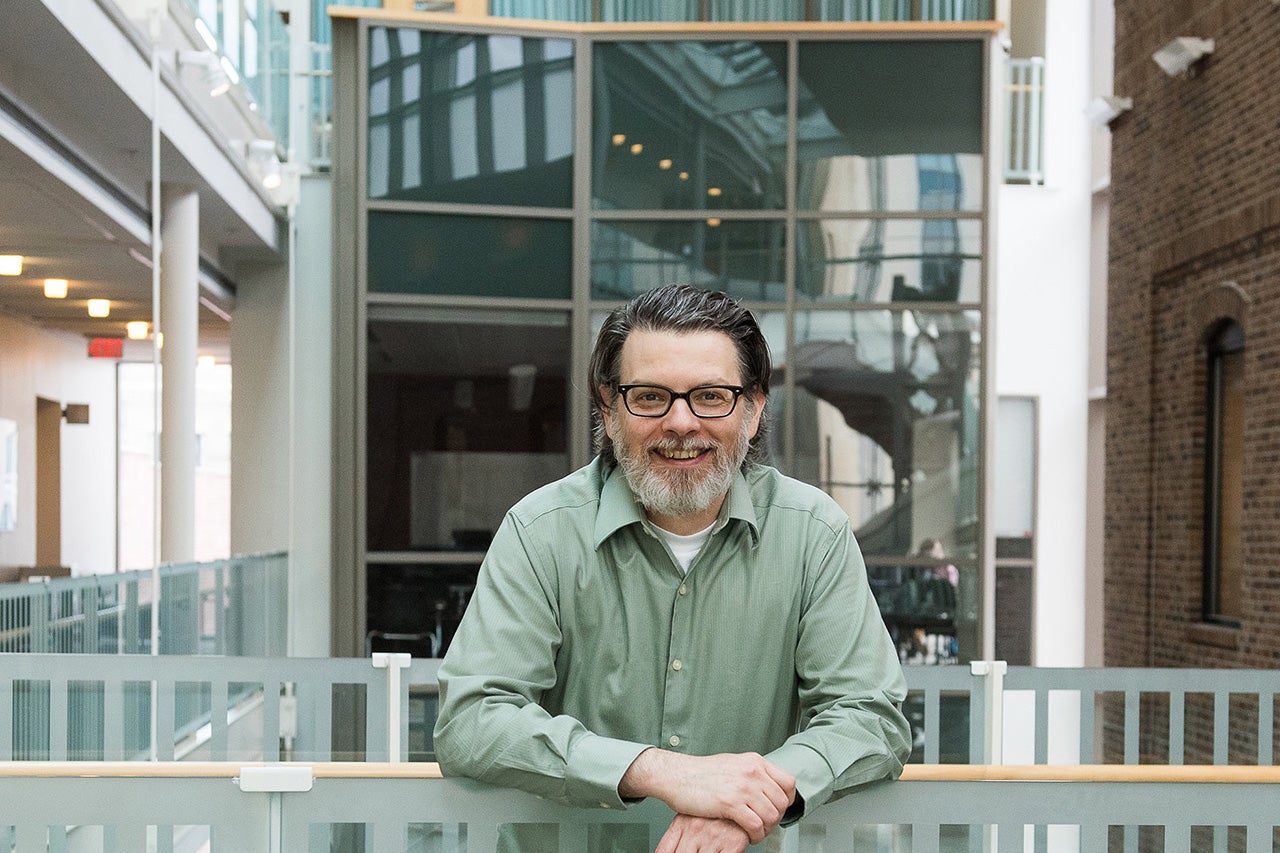Do a search for “ecopreneurship” online and chances are your eye will be drawn to the Wikipedia entry for that word. You can thank entrepreneurship professor David Hansen for that. It was actually a student from his ecopreneurship course last spring that contributed this to the Web.
Hansen has been teaching this unique course in the School of Business for the past eight years. The class grew out of his interest in bringing together environmental studies students and business students so that they could interact and begin to understand each other.
“At that time,” Hansen explains, “I’d been thinking about how people in business and those working with the environment traditionally saw each other as enemies. My thought was, if you bring them both together, a lot can happen.”

Joshua Weston ’17 developed the concept for his eco-friendly building blocks, called Green Blox, in professor David Hansen’s Ecopreneurship class. (Photos by Reese Moore.)
And a lot has happened for Hansen and his students. For one, they’ve established a novel approach to learning. “We work on projects collectively, as a whole class,” he says. “Our work is fundamentally about developing business models for solving environmental problems. We hash those out in discussion, but we’re in a classroom surrounded by white boards, so the next step is mapping out those ideas there and iteratively developing them.”
In addition, Hansen’s class sessions regularly feature guest lectures and discussions led by such luminaries in the field as Tom Szaky (the founder of TerraCycle), Lia Colabello (the director of community and partnerships for the environmental nonprofit Five Gyres) and Stuart Williams (the College’s social and environmental entrepreneur in residence).
“We begin by understanding environmental problems,” Hansen explains, “which takes place through discussions and presentations. Then, we find companies that are addressing those problems, and that work occurs in small teams of students. At that stage, we narrow down our list of problems and begin focusing on them as a whole class. That’s when we switch to working on developing new solutions.”
Among the solutions that Hansen’s students have developed and explored are a business that uses mealworms and other organisms to consume certain types of plastic, an anti-evaporation hydroponic growing system for lakes in drought-stricken areas and a business that warms discarded plastics and fashions them into modular building blocks. This last concept has become the basis of a startup company by former student Joshua Weston ’17, who has dubbed his enterprise Green Blox.
“The big takeaway from this class,” says Hansen, “is the idea that you can be environmentally responsible and make a profit. It’s a perfect fit for the College’s new Quality Enhancement Plan emphasizing sustainability literacy. And the students are starting to get it. If only a small percentage of them go on to make these businesses manifest, we’ll be moving toward a more secure future.”




